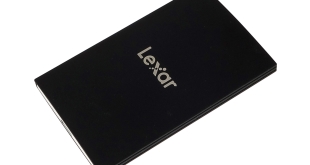ATTO Disk Benchmark
The ATTO disk benchmark is a Windows-based utility for testing storage performance of any storage drive or controller. We use the default benchmark setup and run this on an OCZ Trion 150 SSD directly connected to the SATA ports and then again over a USB 3.0 port using a USB 3.0 to SATA III adapter.
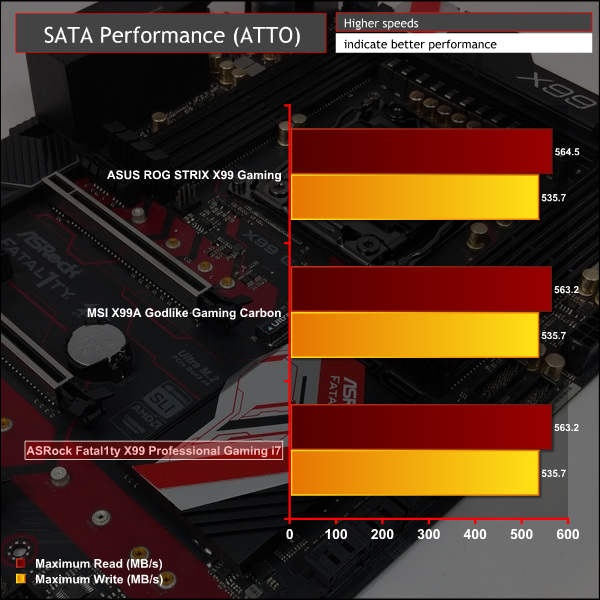
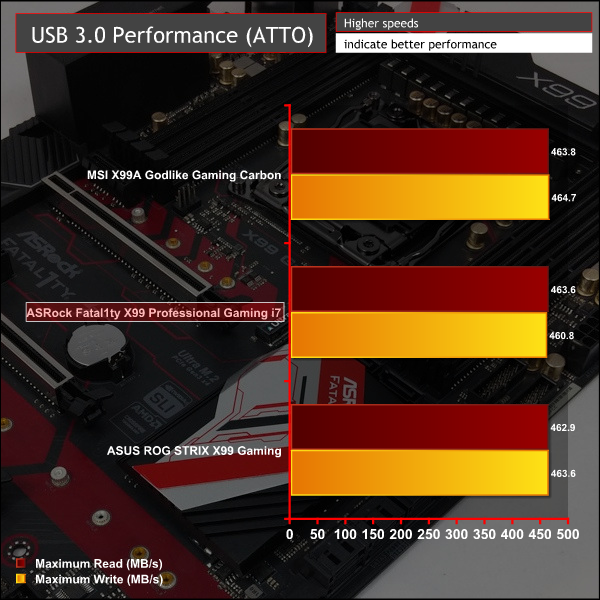
Since the X99 chipset controls USB 3.0 and SATA there was little variation between motherboards.
This similarity holds even accounting for different controllers. We tested the ASRock front and back USB 3.0 ports – the front being X99 and the rear fed through an ASMedia ASM1074 hub controller, and found the bandwidth results to be identical. This is likely to change when adding devices to the other rear USB 3.0 ports, however.
Rightmark Audio Analyser
Rightmark Audio Analyser is a freeware benchmarking utility designed to objectively test the performance characteristics of audio solutions. We setup a line-in line-out loop and execute the record/playback test before generating the results report you see below. This test was run at 16bit audio depth and 192KHz frequency.
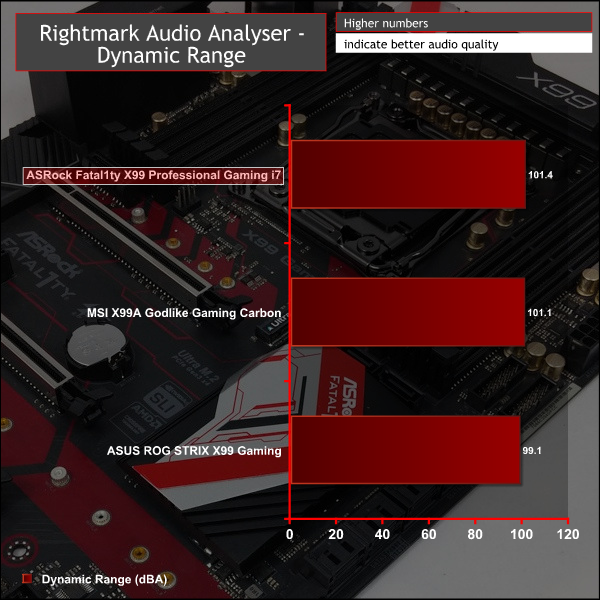
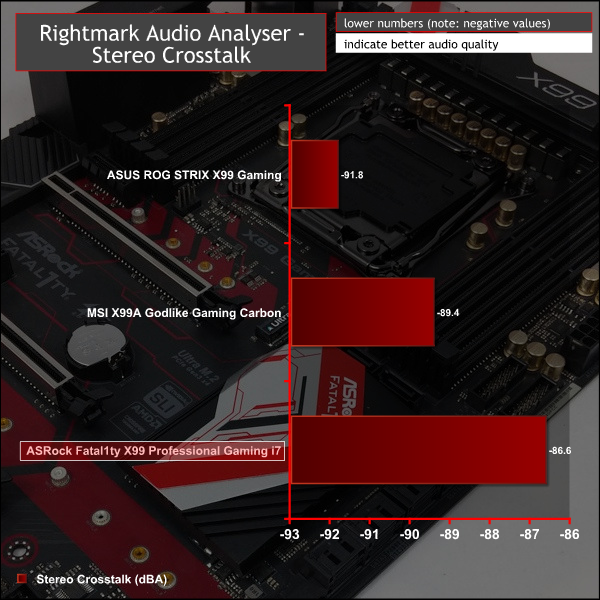
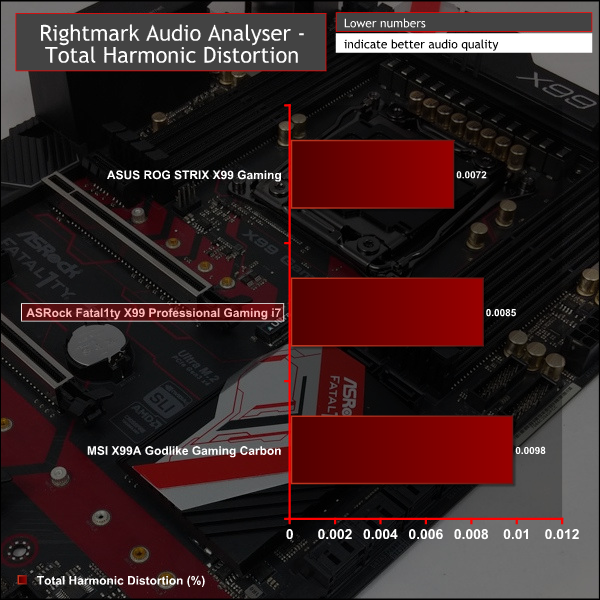
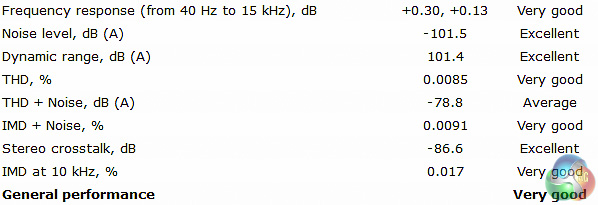
ASRock's audio solution is excellent, but so is the competition's. Since all motherboard vendors are using ALC1150 for their high-end motherboards there's been a surprising amount of convergence in the audio department too.
Vendors are trying to differentiate with extras like headphone amplifiers, swappable op-amps, higher-grade audio connectivity (6.35mm jacks, for example) and accompanying software. With its implementation ASRock uses a Texas Instruments headphone amplifier and offers Creative Sound Blaster 3 software for software-induced post-processing and other novel audio effects.
Power Consumption
We leave the system to idle on the Windows 10 desktop for 5 minutes before taking a reading, for CPU load results we run Cinebench and take a reading in the middle of the render progress.
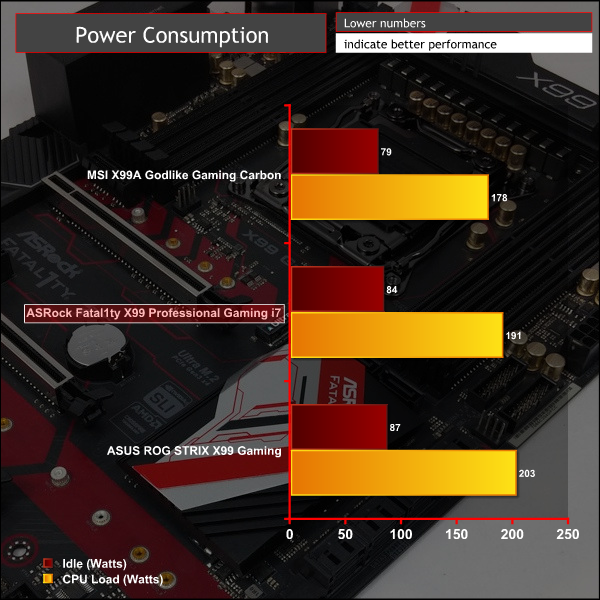
Power consumption falls directly between the MSI and ASUS X99 motherboards. ASRock's voltage profile is less aggressive than ASUS but more so than MSI. This accounts for the bulk of the power consumption differences between the motherboards on test.
Be sure to check out our sponsors store EKWB here
 KitGuru KitGuru.net – Tech News | Hardware News | Hardware Reviews | IOS | Mobile | Gaming | Graphics Cards
KitGuru KitGuru.net – Tech News | Hardware News | Hardware Reviews | IOS | Mobile | Gaming | Graphics Cards


